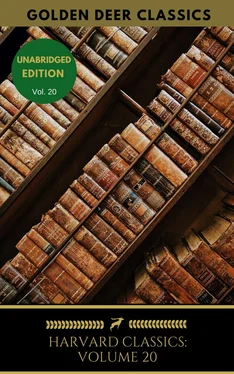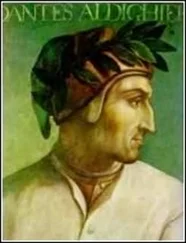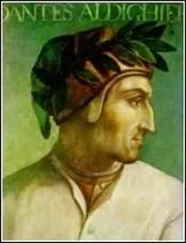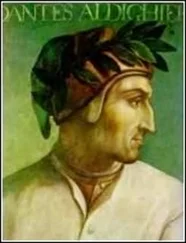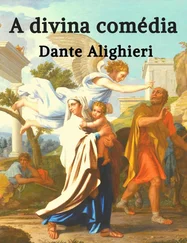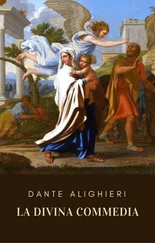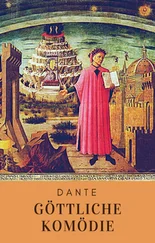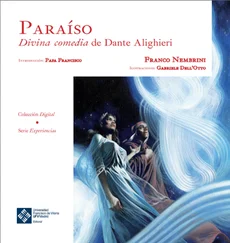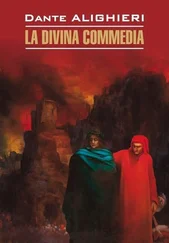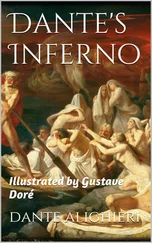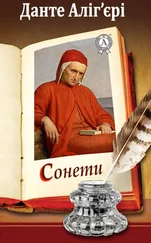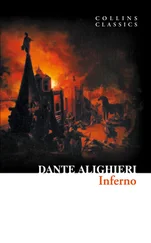Array Dante Alighieri - Harvard Classics Volume 20
Здесь есть возможность читать онлайн «Array Dante Alighieri - Harvard Classics Volume 20» — ознакомительный отрывок электронной книги совершенно бесплатно, а после прочтения отрывка купить полную версию. В некоторых случаях можно слушать аудио, скачать через торрент в формате fb2 и присутствует краткое содержание. Жанр: unrecognised, на английском языке. Описание произведения, (предисловие) а так же отзывы посетителей доступны на портале библиотеки ЛибКат.
- Название:Harvard Classics Volume 20
- Автор:
- Жанр:
- Год:неизвестен
- ISBN:нет данных
- Рейтинг книги:5 / 5. Голосов: 1
-
Избранное:Добавить в избранное
- Отзывы:
-
Ваша оценка:
- 100
- 1
- 2
- 3
- 4
- 5
Harvard Classics Volume 20: краткое содержание, описание и аннотация
Предлагаем к чтению аннотацию, описание, краткое содержание или предисловие (зависит от того, что написал сам автор книги «Harvard Classics Volume 20»). Если вы не нашли необходимую информацию о книге — напишите в комментариях, мы постараемся отыскать её.
1. The Divine Comedy, by Dante Alighieri
Also available:
The Complete Harvard Classics Collection (51 Volumes + The Harvard Classic Shelf Of Fiction)
50 Masterpieces You Have To Read Before You Die (Golden Deer Classics)
Harvard Classics Volume 20 — читать онлайн ознакомительный отрывок
Ниже представлен текст книги, разбитый по страницам. Система сохранения места последней прочитанной страницы, позволяет с удобством читать онлайн бесплатно книгу «Harvard Classics Volume 20», без необходимости каждый раз заново искать на чём Вы остановились. Поставьте закладку, и сможете в любой момент перейти на страницу, на которой закончили чтение.
Интервал:
Закладка:
As they were framed of iron. We had made
Wide circuit, ere a place we reach’d, where loud
The mariner cried vehement: “Go forth:
The entrance is here.” Upon the gates I spied
More than a thousand, who of old from Heaven
Were shower’d. With ireful gestures, “Who is this,”
They cried, “that, without death first felt, goes through
The regions of the dead?” My sapient guide
Made sign that he for secret parley wish’d;
Whereat their angry scorn abating, thus
They spake: “Come thou alone; and let him go,
Who hath so hardily enter’d this realm.
Alone return he by his witless way;
If well he knew it, let him prove. For thee,
Here shalt thou tarry, who through clime so dark
Hast been his escort.” Now bethink thee, reader!
What cheer was mine at sound of those curst words.
I did believe I never should return.
“O my loved guide! who more than seven times [51]
Security hast render’d me, and drawn
From peril deep, whereto I stood exposed,
Desert me not,” I cried, “in this extreme.
And, if our onward going be denied,
Together trace we back our steps with speed.”
My liege, who thither had conducted me,
Replied: “Fear not: for of our passage none
Hath power to disappoint us, by such high
Authority permitted. But do thou
Expect me here; meanwhile, thy wearied spirit
Comfort, and feed with kindly hope, assured
I will not leave thee in this lower world.”
This said, departs the sire benevolent,
And quits me. Hesitating I remain
At war, ’twixt will and will not, in my thoughts.
I could not hear what terms he offer’d them,
But they conferr’d not long, for all at once
Pellmell rush’d back within. Closed were the gates,
By those our adversaries, on the breast
Of my liege lord: excluded, he return’d
To me with tardy steps. Upon the ground
His eyes were bent, and from his brow erased
All confidence, while thus in sighs he spake:
“Who hath denied me these abodes of woe?”
Then thus to me: “That I am anger’d, think
No ground of terror: in this trial I
Shall vanquish, use what arts they may within
For hindrance. This their insolence, not new, [52]
Erewhile at gate less secret they display’d,
Which still is without bolt; upon its arch
Thou saw’st the deadly scroll: and even now,
On this side of its entrance, down the steep,
Passing the circles, unescorted, comes
One whose strong might can open us this land.”
Canto IX
Argument.—After some hindrances, and having seen the hellish furies and other monsters, the Poet, by the help of an angel, enters the city of Dis, wherein he discovers that the heretics are punished in tombs burning with intense fire; and he, together with Virgil, passes onward between the sepulchres and the walls of the city.
The hue, [53]which coward dread on my pale cheeks
Imprinted when I saw my guide turn back,
Chased that from his which newly they had worn,
And inwardly restrain’d it. He, as one
Who listens, stood attentive: for his eye
Not far could lead him through the sable air,
And the thick-gathering cloud. “It yet behoves
We win this fight;” thus he began: “if not,
Such aid to us is offer’d—Oh! how long
Me seems it, ere the promised help arrive.”
I noted, how the sequel of his words
Cloked their beginning; for the last he spake
Agreed not with the first. But not the less
My fear was at his saying; sith I drew
To import worse, perchance, than that he held,
His mutilated speech. “Doth ever any
Into this rueful concave’s extreme depth
Descend, out of the first degree, whose pain
Is deprivation merely of sweet hope?”
Thus I inquiring. “Rarely,” he replied,
“It chances, that among us any makes
This journey, which I wend. Erewhile, ’tis true,
Once came I here beneath, conjured by fell
Erichtho, [54]sorceress, who compell’d the shades
Back to their bodies. No long space my flesh
Was naked of me, when within these walls
She made me enter, to draw forth a spirit
From out of Judas’ circle. Lowest place
Is that of all, obscurest, and removed
Farthest from Heaven’s all-circling orb. The road
Full well I know: thou therefore rest secure.
That lake, the noisome stench exhaling, round
The city of grief encompasses, which now
We may not enter without rage, “Yet more
He added: but I hold it not in mind,
For that mine eye toward the lofty tower
Had drawn me wholly, to its burning top;
Where, in an instant, I beheld uprisen
At once three hellish furies stain’d with blood.
In limb and motion feminine they seem’d;
Around them greenest hydras twisting roll’d
Their volumes; adders and cerastes crept
Instead of hair, and their fierce temples bound.
He, knowing well the miserable hags
Who tend the queen of endless owe, thus spake:
“Mark thou each dire Erynnis. To the left,
This is Megæra; on the right hand, she
Who wails, Alecto; and Tisiphone
I’ th’ midst.” This said, in silence he remain’d.
Their breast they each one clawing tore; themselves
Smote with their palms, and such thrill clamour raised,
That to the bard I clung, suspicion-bound.
“Hasten Medusa: so to adamant
Him shall we change;” all looking down exclaim’d:
“E’en when by Theseus’ might assail’d, we took
No ill revenge.” “Turn thyself round and keep
Thy countenance hid; for if the Gorgon dire
Be shown, and thou shouldst view it, thy return
Upwards would be forever lost.” This said,
Himself, my gentle master, turn’d me round;
Nor trusted he my hands, but with his own
He also hid me. Ye of intellect
Sound and entire, mark well the lore [55]conceal’d
Under close texture of the mystic strain.
And now there came o’er the perturbed waves
Loud-crashing, terrible, a sound that made
Either shore tremble, as if of a wind
Impetuous, from conflicting vapors sprung,
That ’gainst some forest driving all his might,
Plucks off the branches, beats them down, and hurls
Afar; then, onward passing, proudly sweeps
His whirlwind rage, while beasts and shepherds fly.
Mine eyes he loosed, and spake: “And now direct
Thy visual nerve along that ancient foam,
There, thickest where the smoke ascends.” As frogs
Before their foe the serpent, through the wave
Ply swiftly all, till at the ground each one
Lies on a heap; more than a thousand spirits
Destroy’d, so saw I fleeing before one
Who pass’d with unwet feet the Stygian sound.
He, from his face removing the gross air,
Oft his left hand forth stretch’d, and seem’d alone
By that annoyance wearied. I perceived
That he was sent from Heaven; and to my guide
Turn’d me, who signal made, that I should stand
Quiet, and bend to him. Ah me! how full
Of noble anger seem’d he. To the gate
He came, and with his wand touch’d it, whereat
Open without impediment it flew.
“Outcasts of heaven! O abject race, scorn’d!”
Began he, on the horrid grunsel standing,
“Whence doth this wild excess of insolence
Lodge in you? wherefore kick you ’gainst that will
Ne’er frustrate of its end, and which so oft
Hath laid on you enforcement of your pangs?
What profits at the Fates to butt the horn?
Your Cerberus, [56]if ye remember, hence
Bears still, peel’d of their hair, his throat and maw.”
Читать дальшеИнтервал:
Закладка:
Похожие книги на «Harvard Classics Volume 20»
Представляем Вашему вниманию похожие книги на «Harvard Classics Volume 20» списком для выбора. Мы отобрали схожую по названию и смыслу литературу в надежде предоставить читателям больше вариантов отыскать новые, интересные, ещё непрочитанные произведения.
Обсуждение, отзывы о книге «Harvard Classics Volume 20» и просто собственные мнения читателей. Оставьте ваши комментарии, напишите, что Вы думаете о произведении, его смысле или главных героях. Укажите что конкретно понравилось, а что нет, и почему Вы так считаете.
